
-
 Juve bounce back after Tudor sacking as Roma keep pace with leaders Napoli
Juve bounce back after Tudor sacking as Roma keep pace with leaders Napoli
-
Favorite Sovereignty scratched from Breeders' Cup Classic after fever

-
 Doue injured as PSG held at Lorient in Ligue 1
Doue injured as PSG held at Lorient in Ligue 1
-
Leverkusen win late in German Cup, Stuttgart progress

-
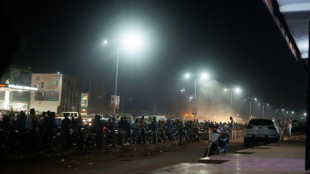 Jihadist fuel blockade makes life a struggle in Mali's capital
Jihadist fuel blockade makes life a struggle in Mali's capital
-
Uber plans San Francisco robotaxis in Waymo challenge

-
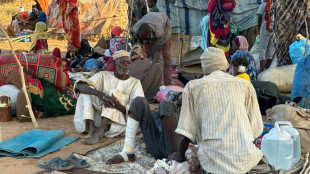 Paramilitary chief vows united Sudan as his forces are accused of mass killings
Paramilitary chief vows united Sudan as his forces are accused of mass killings
-
Trump, Xi to meet seeking truce in damaging trade war

-
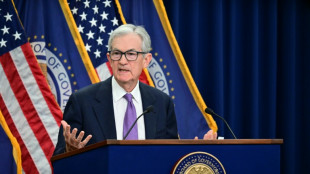 Divided US Fed backs second quarter-point rate cut of 2025
Divided US Fed backs second quarter-point rate cut of 2025
-
'Amazing' feeling for Rees-Zammit on Wales return after NFL adventure

-
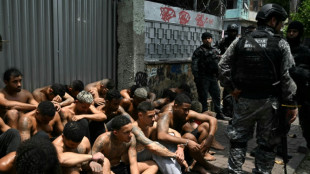 'Cruel' police raids help, not hinder, Rio's criminal gangs: expert
'Cruel' police raids help, not hinder, Rio's criminal gangs: expert
-
S. African president eyes better US tariff deal 'soon'
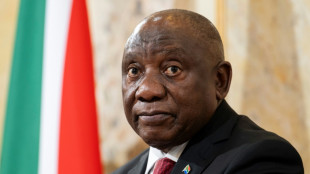
-
 Sinner cruises in Paris Masters opener, Zverev keeps title defence alive
Sinner cruises in Paris Masters opener, Zverev keeps title defence alive
-
Winter Olympics - 100 days to go to 'unforgettable Games'

-
 Kiwi Plumtree to step down as Sharks head coach
Kiwi Plumtree to step down as Sharks head coach
-
US media mogul John Malone to step down as head of business empire

-
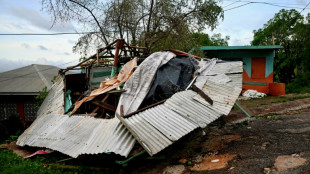 'Never been this bad': Jamaica surveys ruins in hurricane's wake
'Never been this bad': Jamaica surveys ruins in hurricane's wake
-
Zverev survives scare to kickstart Paris Masters title defence

-
 Rabat to host 2026 African World Cup play-offs
Rabat to host 2026 African World Cup play-offs
-
WHO urges Sudan ceasefire after alleged massacres in El-Fasher
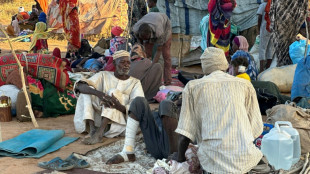
-
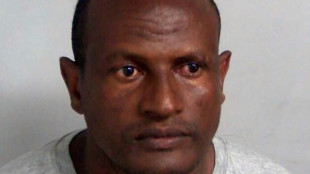 Under-fire UK govt deports migrant sex offender with £500
Under-fire UK govt deports migrant sex offender with £500
-
AI chip giant Nvidia becomes world's first $5 trillion company

-
 Arsenal depth fuels Saka's belief in Premier League title charge
Arsenal depth fuels Saka's belief in Premier League title charge
-
Startup Character.AI to ban direct chat for minors after teen suicide

-
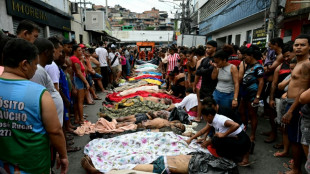 132 killed in massive Rio police crackdown on gang: public defender
132 killed in massive Rio police crackdown on gang: public defender
-
Pedri joins growing Barcelona sickbay

-
 Zambia and former Chelsea manager Grant part ways
Zambia and former Chelsea manager Grant part ways
-
Russia sends teen who performed anti-war songs back to jail

-
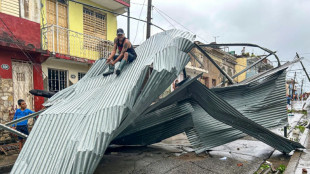 Caribbean reels from hurricane as homes, streets destroyed
Caribbean reels from hurricane as homes, streets destroyed
-
Boeing reports $5.4-bn loss on large hit from 777X aircraft delays

-
 Real Madrid's Vinicius says sorry for Clasico substitution huff
Real Madrid's Vinicius says sorry for Clasico substitution huff
-
Dutch vote in snap election seen as test for Europe's far-right

-
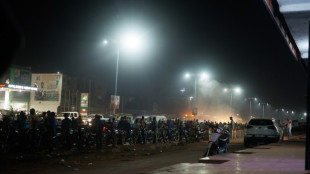 Jihadist fuel blockade makes daily life a struggle for Bamako residents
Jihadist fuel blockade makes daily life a struggle for Bamako residents
-
De Bruyne goes under the knife for hamstring injury

-
 Wolvaardt's 169 fires South Africa to 319-7 in World Cup semis
Wolvaardt's 169 fires South Africa to 319-7 in World Cup semis
-
EU seeks 'urgent solutions' with China over chipmaker Nexperia

-
 Paris prosecutor promises update in Louvre heist probe
Paris prosecutor promises update in Louvre heist probe
-
Funds for climate adaptation 'lifeline' far off track: UN
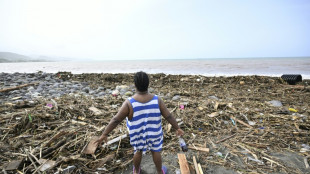
-
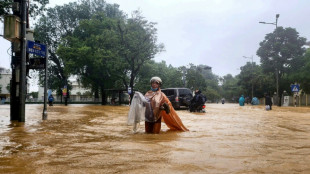 Record Vietnam rains kill seven and flood 100,000 homes
Record Vietnam rains kill seven and flood 100,000 homes
-
Markets extend record run as trade dominates
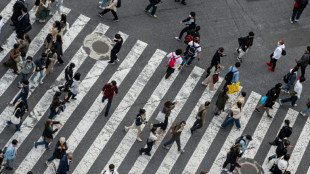
-
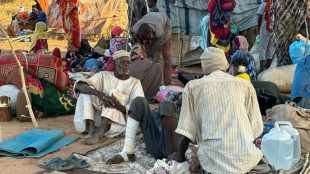 Sudan govt accuses RSF of attacking mosques in El-Fasher takeover
Sudan govt accuses RSF of attacking mosques in El-Fasher takeover
-
Rain washes out 1st Australia-India T20 match

-
 Spain's Santander bank posts record profit
Spain's Santander bank posts record profit
-
FIA taken to court to block Ben Sulayem's uncontested candidacy

-
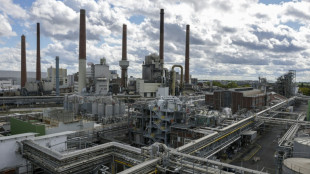 Chemicals firm BASF urges EU to cut red tape as profit dips
Chemicals firm BASF urges EU to cut red tape as profit dips
-
Romania says US will cut some troops in Europe
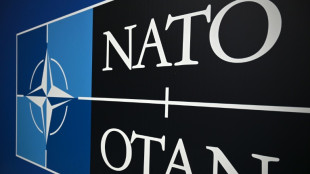
-
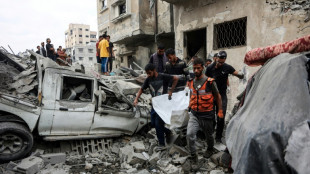 Israel hits dozens of targets as Gaza sees deadliest night since truce
Israel hits dozens of targets as Gaza sees deadliest night since truce
-
Mercedes-Benz reassures on Nexperia chips as profit plunges
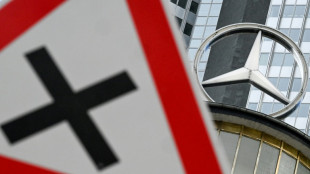
-
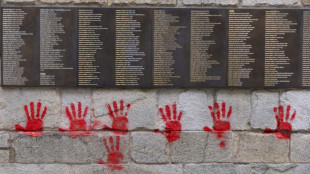 France tries Bulgarians over defacing memorial in Russia-linked case
France tries Bulgarians over defacing memorial in Russia-linked case
-
BBC says journalist questioned and blocked from leaving Vietnam
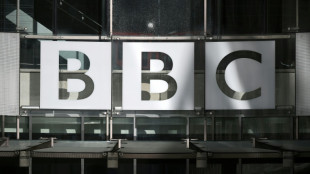

Nearly 900 mn poor people exposed to climate shocks, UN warns
Nearly 80 percent of the world's poorest, or about 900 million people, are directly exposed to climate hazards exacerbated by global warming, bearing a "double and deeply unequal burden," the United Nations warned Friday.
"No one is immune to the increasingly frequent and stronger climate change effects like droughts, floods, heat waves, and air pollution, but it's the poorest among us who are facing the harshest impact," Haoliang Xu, acting administrator of the United Nations Development Programme, told AFP in a statement.
COP30, the UN climate summit in Brazil in November, "is the moment for world leaders to look at climate action as action against poverty," he added.
According to an annual study published by the UNDP together with the Oxford Poverty and Human Development Initiative, 1.1 billion people, or about 18 percent of the 6.3 billion in 109 countries analyzed, live in "acute multidimensional" poverty, based on factors like infant mortality and access to housing, sanitation, electricity and education.
Half of those people are minors.
One example of such extreme deprivation cited in the report is the case of Ricardo, a member of the Guarani Indigenous community living outside Santa Cruz de la Sierra, Bolivia's largest city.
Ricardo, who earns a meager income as a day laborer, shares his small single-family house with 18 other people, including his three children, parents and other extended family.
The house has only one bathroom, a wood- and coal-fired kitchen, and none of the children are in school.
"Their lives reflect the multidimensional realities of poverty," the report said.
- Prioritizing 'people and the planet' -
Two regions particularly affected by such poverty are sub-Saharan Africa, and South Asia -- and they are also highly vulnerable to the impacts of climate change.
The report highlights the connection between poverty and exposure to four environmental risks: extreme heat, drought, floods, and air pollution.
"Impoverished households are especially susceptible to climate shocks as many depend on highly vulnerable sectors such as agriculture and informal labor," the report said.
"When hazards overlap or strike repeatedly, they compound existing deprivations."
As a result, 887 million people, or nearly 79 percent of these poor populations, are directly exposed to at least one of these threats, with 608 million people suffering from extreme heat, 577 million affected by pollution, 465 million by floods, and 207 million by drought.
Roughly 651 million are exposed to at least two of the risks, 309 million to three or four risks, and 11 million poor people have already experienced all four in a single year.
"Concurrent poverty and climate hazards are clearly a global issue," the report said.
And the increase in extreme weather events threatens development progress.
While South Asia has made progress in fighting poverty, 99.1 percent of its poor population exposed to at least one climate hazard.
The region "must once again chart a new path forward, one that balances determined poverty reduction with innovative climate action," the report says.
With Earth's surface rapidly getting warmer, the situation is likely to worsen further and experts warn that today's poorest countries will be hardest hit by rising temperatures.
"Responding to overlapping risks requires prioritizing both people and the planet, and above all, moving from recognition to rapid action," the report said.
J.Marty--VB
